In the evolving landscape of yard maintenance, innovation continues to redefine how individuals approach landscaping and lawn care. Traditional methods involving push mowers, riding lawnmowers, or zero-turn mowers have long dominated residential and commercial spaces alike. However, as the demands of modern land management grow—particularly in rural areas, large properties, and agricultural settings—a new category of equipment has emerged to meet these challenges head-on: pickup truck lawn mowers.
The concept may seem unconventional at first glance, but pickup truck-mounted lawn mowers represent a smart, efficient, and practical solution for those tasked with maintaining expansive green spaces. These specialized attachments transform an everyday vehicle into a powerful mowing machine, combining mobility, versatility, and productivity in a way that traditional mowers cannot match.
This article delves deeply into the world of pickup truck lawn mowers, exploring their design, functionality, advantages, and suitability for different environments. By examining the integration of this technology into modern yard care practices, we aim to highlight why they are becoming a go-to option for both professionals and homeowners who require reliable, large-scale grass management.
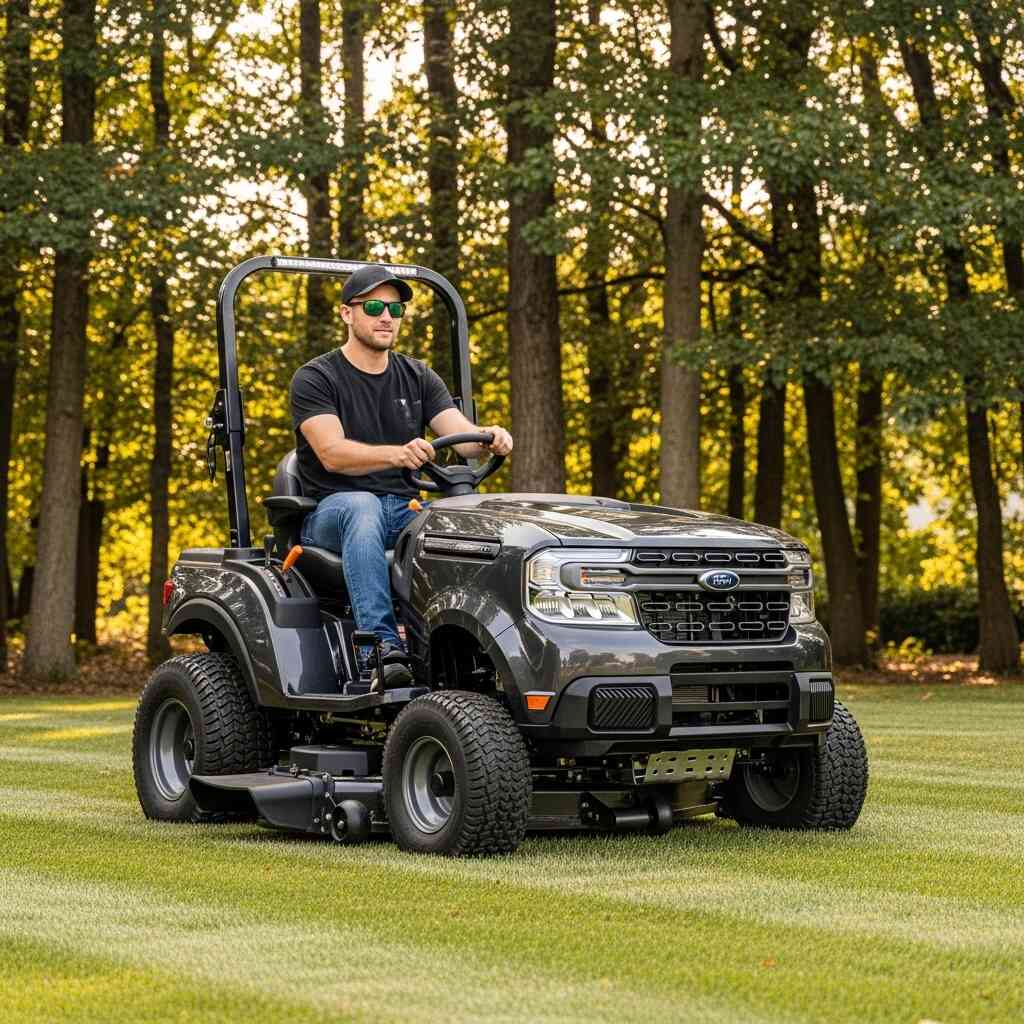
Understanding Pickup Truck Lawn Mowers
What Are Pickup Truck Lawn Mowers?
Pickup truck lawn mowers are specialized cutting units designed to be mounted onto the chassis or bed of a standard pickup truck. These mowers typically consist of a heavy-duty cutting deck equipped with one or more rotating blades, hydraulic systems for height adjustment, and mechanisms for attaching to the vehicle securely. Unlike conventional mowers that rely on dedicated frames and engines, pickup truck mowers leverage the power, durability, and mobility of trucks to perform large-scale mowing tasks efficiently.
These attachments can vary significantly in size and complexity, ranging from simple rear-mounted decks suitable for small farms or acreage owners to sophisticated multi-blade systems used by government agencies and large agricultural operations. The key idea is to repurpose a vehicle that is already part of the user’s daily life—such as a work truck—into a multipurpose tool capable of performing essential yard maintenance tasks.
How Do They Work?
At the core of pickup truck lawn mowers is the principle of mechanical integration. Most models operate using a power take-off (PTO) system connected to the truck’s drivetrain or an independent hydraulic motor powered by the vehicle’s engine. This allows the mower to engage and disengage easily while in motion, making it possible to mow while driving slowly across a field or property.
The cutting deck is usually mounted either at the front, rear, or underneath the truck bed, depending on the model and intended use. Front-mount mowers offer better visibility and control, allowing the operator to see exactly where the cutting is taking place. Rear-mount versions, on the other hand, are often simpler to install and provide a wider cut due to their positioning behind the truck.
Hydraulic lift systems enable the user to adjust the cutting height according to terrain variations, ensuring a consistent and even cut across uneven ground. Some advanced models also feature folding mechanisms, allowing the mower to collapse into a compact form for transport or storage when not in use.
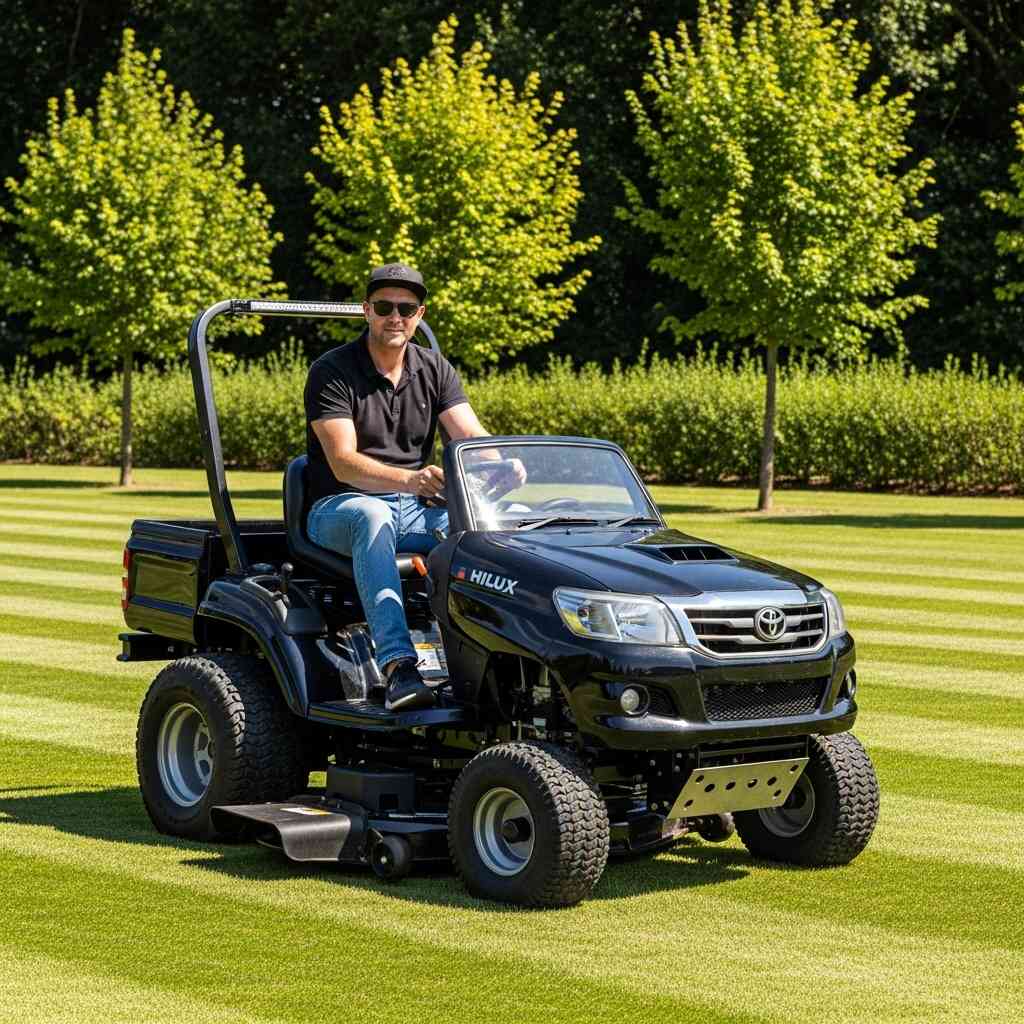
Types of Pickup Truck Lawn Mowers
There are several types of pickup truck lawn mowers available, each tailored to specific applications:
- Rear-Mounted Mowers : Ideal for general-purpose mowing, these mowers attach to the back of the truck and are commonly used in agricultural settings.
- Front-Mounted Mowers : Offer superior visibility and maneuverability, especially useful in areas with obstacles or uneven terrain.
- Undermount Mowers : Designed to fit beneath the truck bed, providing a low-profile option that doesn’t interfere with the truck’s primary functions.
- Flail Mowers : Used for heavy-duty mowing, particularly in overgrown fields or areas with brush and tall grass.
- Sickle Bar Mowers : Best suited for precision mowing along fences, ditches, and waterways.
Each type serves a unique purpose, allowing users to select the most appropriate model based on their specific needs, terrain conditions, and frequency of use.
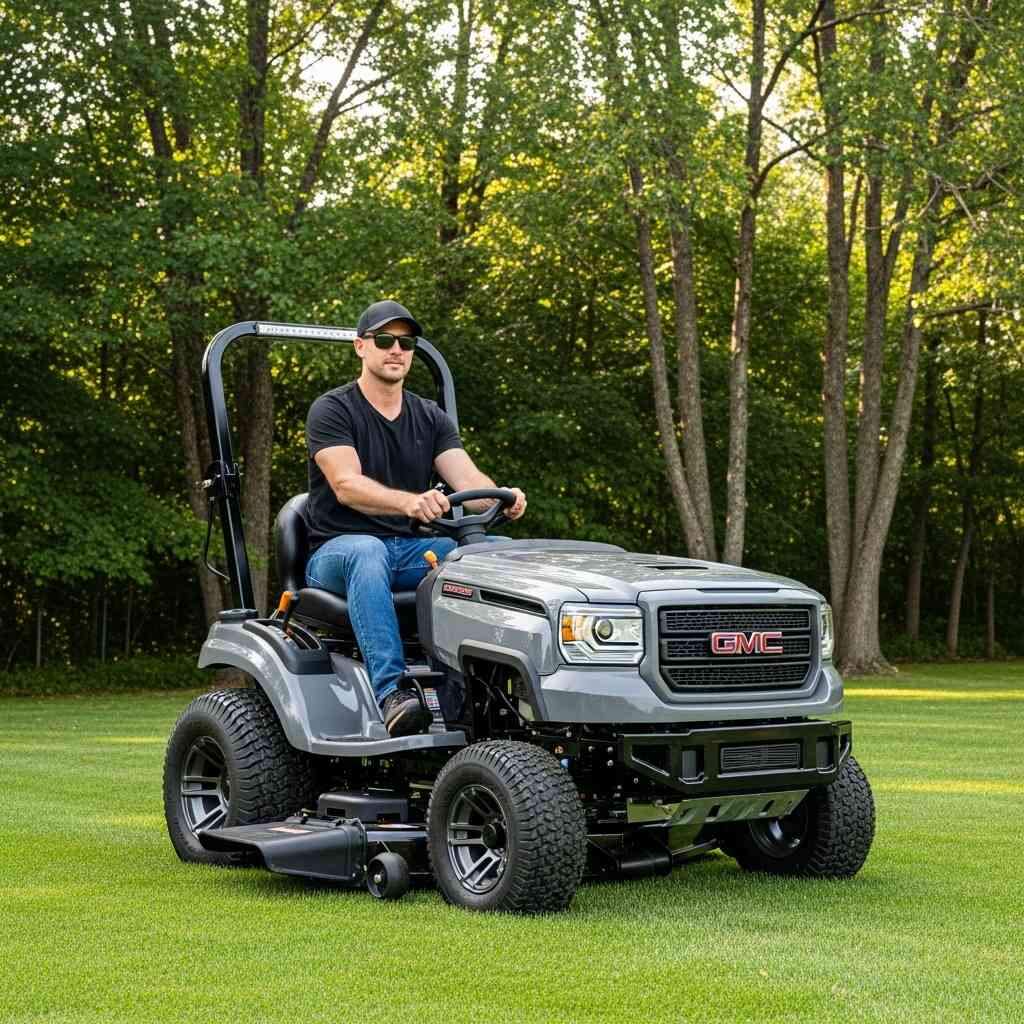
Advantages of Using Pickup Truck Lawn Mowers
Enhanced Efficiency and Productivity
One of the most compelling benefits of pickup truck lawn mowers is their ability to cover large areas quickly and efficiently. Traditional mowers, especially walk-behind models, require significant time and physical effort to maintain even moderately sized yards. In contrast, pickup truck mowers can cut wide swaths of grass in a single pass, drastically reducing the time needed to complete a job.
For instance, a rear-mounted mower with a 10-foot cutting width can mow an acre of land in just under an hour, whereas a typical zero-turn mower might take closer to two hours for the same area. This efficiency becomes increasingly valuable for those managing multiple acres, such as ranchers, farmers, or municipal workers responsible for roadside vegetation.
Moreover, since the truck itself provides the locomotion, there is no need to invest in a separate vehicle or trailer to transport the mower between locations. This integrated approach streamlines the entire mowing process, from setup to execution.
Versatility Across Terrain
Another major advantage lies in the adaptability of pickup truck mowers to various types of terrain. Many rural and semi-rural properties feature uneven landscapes, slopes, ditches, and other challenging features that make traditional mowing difficult or dangerous. Pickup trucks, known for their ruggedness and off-road capabilities, provide a stable platform for mowing in such environments.
Front-mounted mowers, in particular, excel in navigating tight spaces and following contours closely. Their positioning allows operators to maintain precise control, which is crucial when mowing near structures, trees, or along fence lines. Additionally, the ability to raise and lower the cutting deck hydraulically ensures that the mower can adjust to changing elevations without damaging the blades or the surrounding vegetation.
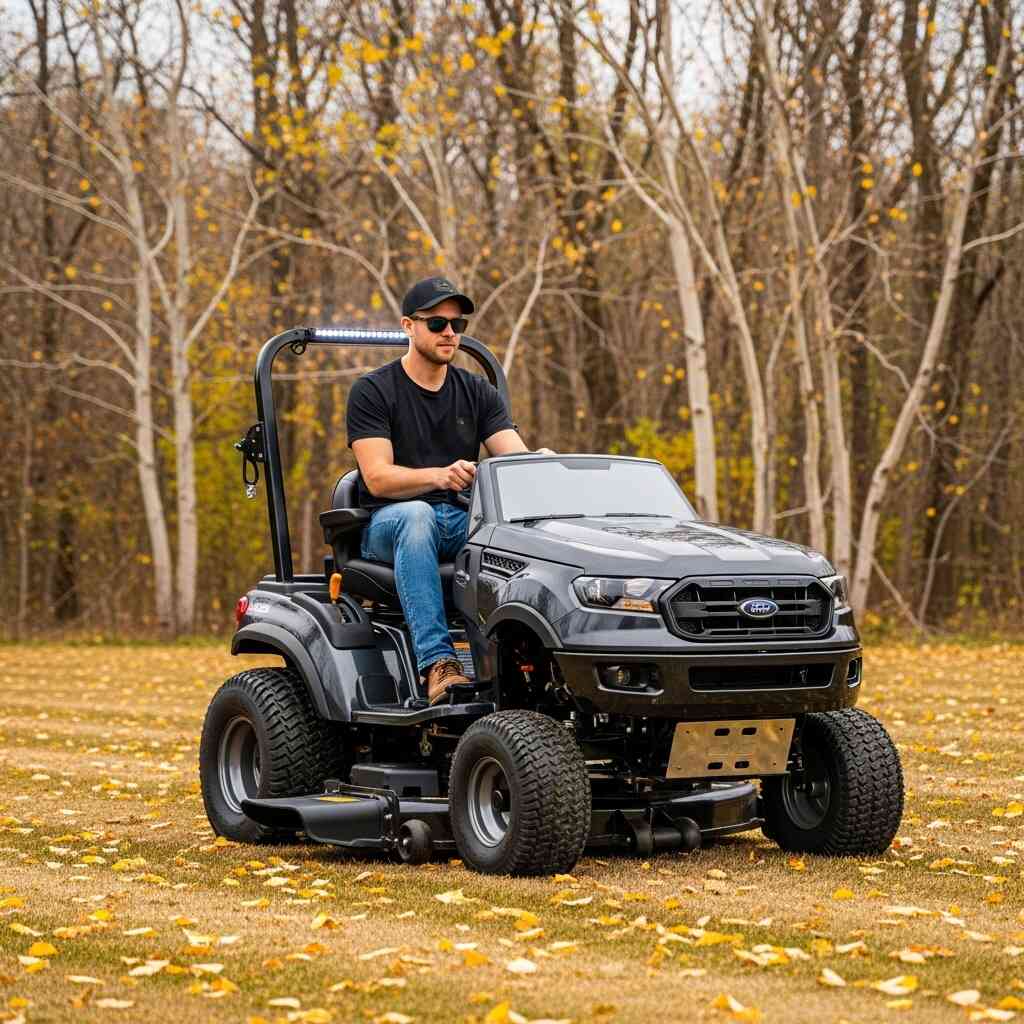
Cost-Effective Use of Existing Equipment
For many individuals and organizations, purchasing specialized mowing equipment represents a significant investment. Pickup truck lawn mowers eliminate the need for additional vehicles or trailers by utilizing an asset that is already owned and maintained—the pickup truck.
This dual-use capability makes them a cost-effective alternative to standalone mowers. There is no need to allocate space for storage or to worry about maintenance costs associated with a second engine or frame. Instead, the mower becomes an extension of the truck, leveraging its existing powertrain and support systems.
Furthermore, because pickup trucks are commonly used for a variety of tasks—from hauling materials to transporting tools—they serve as ideal platforms for multifunctional attachments like mowers. This versatility enhances the overall utility of the vehicle, making it a central component of property management and maintenance.
Environmental and Operational Benefits
From an environmental standpoint, pickup truck lawn mowers can contribute to more sustainable land management practices. By reducing the number of machines required for mowing, they help minimize fuel consumption and emissions. Since the mower operates using the truck’s engine, there is no need for a secondary power source, further conserving energy and resources.
Operationally, these mowers are designed for ease of use. Once installed, they can be deployed quickly and operated with minimal training. Many models come with intuitive controls that allow for adjustments on the fly, enabling the operator to respond to changing conditions without interrupting the workflow.
Additionally, the ability to move swiftly between mowing sites makes pickup truck mowers ideal for seasonal maintenance programs or emergency cleanup after storms or natural disasters. Their robust construction ensures reliability even under demanding conditions, providing peace of mind to users who depend on consistent performance.
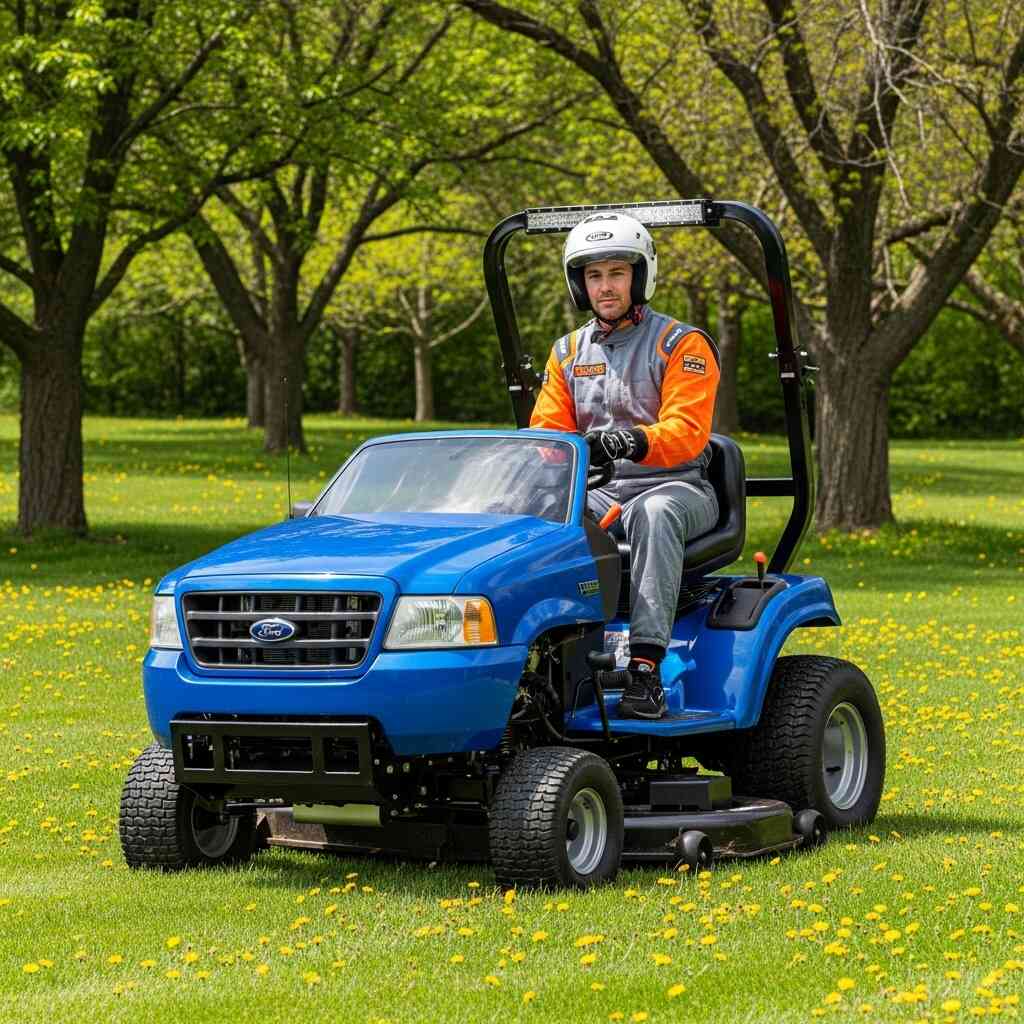
Choosing the Right Pickup Truck Lawn Mower
Assessing Your Needs
Selecting the appropriate pickup truck lawn mower begins with a clear understanding of your specific requirements. Key factors to consider include:
- Size of the Area to Be Mowed : Larger properties benefit from wider cutting decks, while smaller lots may only require a narrower unit.
- Type of Terrain : Steep slopes, rocky ground, or heavily vegetated areas may necessitate a more durable or specialized mower type.
- Frequency of Use : Occasional use calls for a basic model, while frequent or professional use warrants a more robust and feature-rich option.
- Truck Compatibility : Not all mowers fit every truck. It is essential to ensure that the attachment mechanism aligns with the make, model, and configuration of your vehicle.
By carefully evaluating these factors, you can narrow down the options and choose a mower that best suits your operational needs.
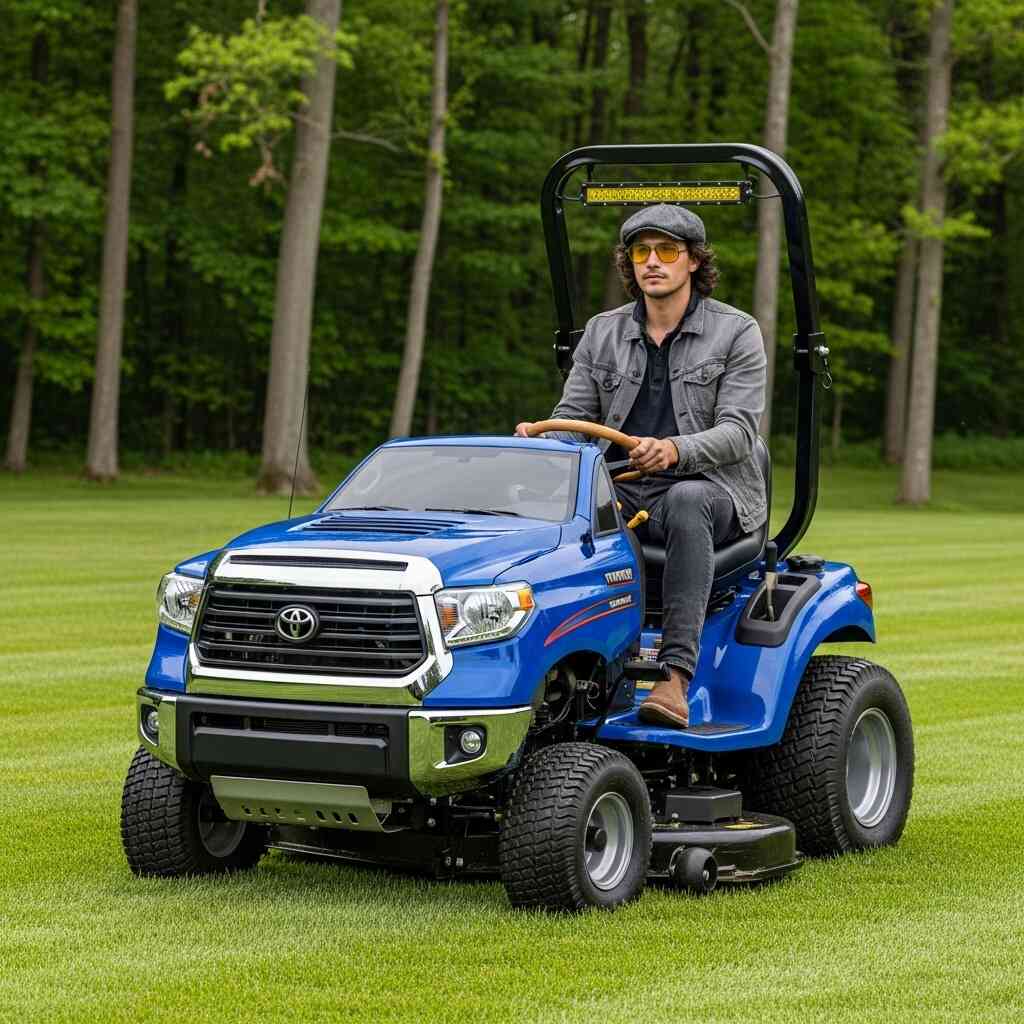
Matching the Mower to the Vehicle
It is crucial to ensure that the chosen mower is compatible with the truck’s specifications. Factors such as weight capacity, hitch type, and engine power play a significant role in determining whether the mower will function effectively.
Heavy-duty mowers, especially those designed for flail or sickle bar cutting, can add considerable weight to the rear or front of the truck. Therefore, it is important to verify that the vehicle’s suspension and braking systems can handle the added load without compromising safety or performance.
Additionally, some mowers require access to the truck’s PTO or auxiliary hydraulics. If the vehicle lacks these features, alternative mounting and power solutions must be explored, such as electric or belt-driven systems.
Installation and Setup Considerations
Installing a pickup truck lawn mower typically involves securing the attachment to the vehicle’s frame or hitch and connecting any necessary power or hydraulic components. While some models are designed for quick attachment and detachment, others may require more permanent installation.
It is advisable to follow the manufacturer’s instructions closely and, if necessary, seek assistance from a qualified technician. Proper installation ensures optimal performance, longevity of the equipment, and safety during operation.
Operators should also familiarize themselves with the controls and safety protocols before beginning any mowing activity. This includes understanding how to engage and disengage the blades, adjust cutting height, and navigate around obstacles safely.
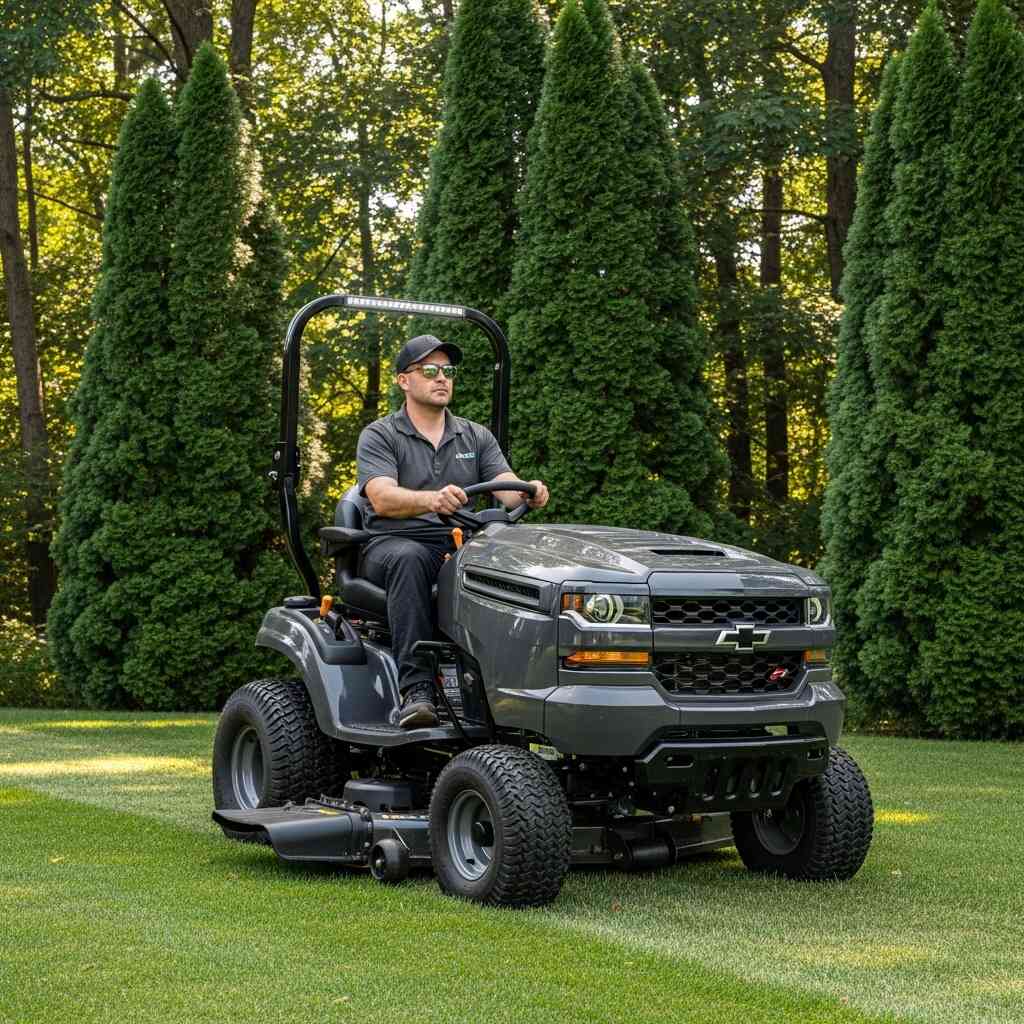
Maintaining and Operating Pickup Truck Lawn Mowers
Routine Maintenance Practices
Like any mechanical equipment, pickup truck lawn mowers require regular maintenance to ensure smooth operation and extend their lifespan. Essential maintenance tasks include:
- Blade Sharpening and Replacement : Dull blades reduce cutting efficiency and can damage the grass. Regular sharpening or replacement is necessary, especially after prolonged use or contact with debris.
- Greasing Moving Parts : Bearings, joints, and pivot points should be lubricated periodically to prevent wear and tear.
- Inspection of Hydraulic Systems : Leaks or malfunctions in the hydraulic system can affect blade height adjustment and overall performance. Checking hoses, fittings, and fluid levels is critical.
- Cleaning After Use : Grass clippings, dirt, and moisture can accumulate on the mower, leading to corrosion or clogging. Thorough cleaning after each use helps prevent buildup and prolongs the life of the equipment.
Adhering to a consistent maintenance schedule minimizes downtime and ensures that the mower remains ready for use whenever needed.
Safe Operation Guidelines
Operating a pickup truck lawn mower requires attention to safety and proper technique. Key guidelines include:
- Wearing Protective Gear : Operators should wear sturdy footwear, gloves, and eye protection to guard against flying debris.
- Avoiding Obstacles : Before mowing, survey the area for hidden hazards such as rocks, stumps, or irrigation lines that could damage the mower or cause accidents.
- Maintaining a Safe Speed : Mowing at a moderate pace allows for better control and reduces the risk of tipping or loss of traction.
- Clearing the Area : Ensure that bystanders, pets, or livestock are kept at a safe distance during operation.
- Proper Blade Engagement : Engage the blades gradually and only when the truck is moving forward to prevent strain on the equipment.
Following these safety measures protects both the operator and the equipment, promoting a safer and more effective mowing experience.
Troubleshooting Common Issues
Despite their durability, pickup truck lawn mowers may encounter issues that affect performance. Common problems include:
- Uneven Cutting : Often caused by dull blades, incorrect deck height, or uneven tire pressure. Inspecting and adjusting these elements usually resolves the issue.
- Vibrations or Unusual Noises : May indicate loose components, worn bearings, or misalignment. A thorough inspection can identify and address the source of the problem.
- Hydraulic Malfunctions : Leaks, pressure loss, or erratic blade movement can result from damaged hoses or faulty valves. Replacing defective parts restores normal function.
- Engine Overheating : Extended use or inadequate cooling can cause the truck’s engine to overheat. Monitoring temperature gauges and taking breaks during long mowing sessions helps prevent this.
Understanding how to diagnose and resolve these common issues empowers operators to maintain peak performance and avoid costly repairs.
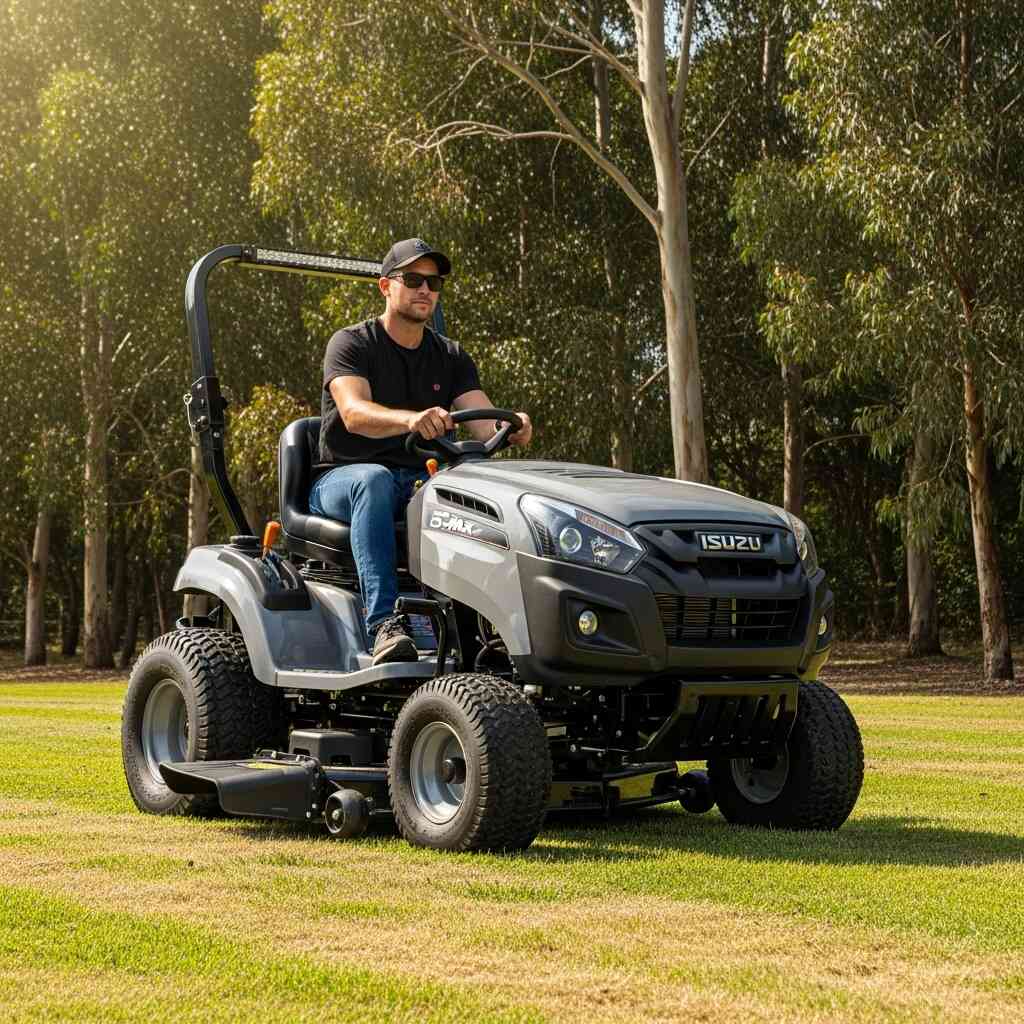
Conclusion
Pickup truck lawn mowers stand out as a smart, innovative solution for modern yard care. By integrating directly with a versatile and widely-used vehicle, they offer unparalleled efficiency, adaptability, and practicality for managing large-scale grass maintenance. Whether used by homeowners with extensive acreage, agricultural professionals, or municipal crews, these mowers provide a powerful means of keeping vast expanses of land well-groomed and functional.
Their ability to traverse diverse terrains, coupled with the convenience of utilizing an existing vehicle, makes them a cost-effective and environmentally conscious choice. With proper selection, installation, and maintenance, pickup truck lawn mowers deliver consistent performance and long-term value, proving themselves as indispensable tools in the realm of yard care.
As the demand for efficient, scalable, and sustainable land management solutions continues to grow, pickup truck lawn mowers are poised to play an increasingly vital role. Their presence in both personal and professional settings underscores a shift toward smarter, more integrated approaches to outdoor maintenance—an evolution that promises to reshape how we think about lawn care in the years to come.

